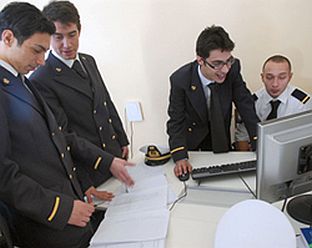Challenge(s)
Offering the right education and training to meet the port city’s current and future needs.
How to develop new activities in the port-city interface ?
Good practice
Adapt vocational training programmes to include the specific skills required by city/port activities
By working actively with stakeholders in research and education, ports and port industries can play a part in the development of specific training programmes. Their content is regularly updated to reflect the needs of a constantly changing port economy. These programmes may be short or long-term, to satisfy the requirements of technical and service-based industries.
Case study
The port city of Genoa has identified the maritime economy as a strategic sector for smart, sustainable growth. This strategic objective has resulted in the creation of two specialised training institutes: one, the Italian Shipping Academy (Genoa) offers training in « sustainable mobility for maritime transport and fishing »; the other, the venerable « Nautico San Giorgio » Institute founded in 1827 and now named the « Istituto tecnico Statale dei Trasporti e Logistica », provides 1440 students with training in the latest technologies used in shipbuilding, boating and naval mechanics.
The Economics Department of Genoa University also offers a Masters course in « Maritime and port management and economics ».
These vocational training programmes constitute one of the pillars of local development. They play an important role in a knowledge-based economy that offers growth and job opportunities, while improving the quality of life for the population and the territory.
The Province of Genoa, the Region and the port authorities also work closely together with teaching staff to identify educational content for pupils in secondary schools. By introducing pupils to the world of ports and the sea, it is hoped that they will be encouraged to go on and develop their interest in these courses further. The Port of Genoa has adopted a highly proactive, multi-faceted communication strategy aimed at young people.
In 2018 Genoa was chosen as the site for the Foundation SILP (Scuola Italiana Logistico Portuale – Italian foundation for future port-logistics training) by its creators: Isfort (Transport research and training Institute), employment agency Randstad, and the RINA Group. The new body aims to provide a forum for contact between public institutions and private enterprise, in order to tackle the phenomena and processes driving changes in the port workplace. Automation, digitisation, the internet of things, and the rise of mega-ships all represent challenges that need to be faced quickly, in terms of jobs and the new skills needed.

